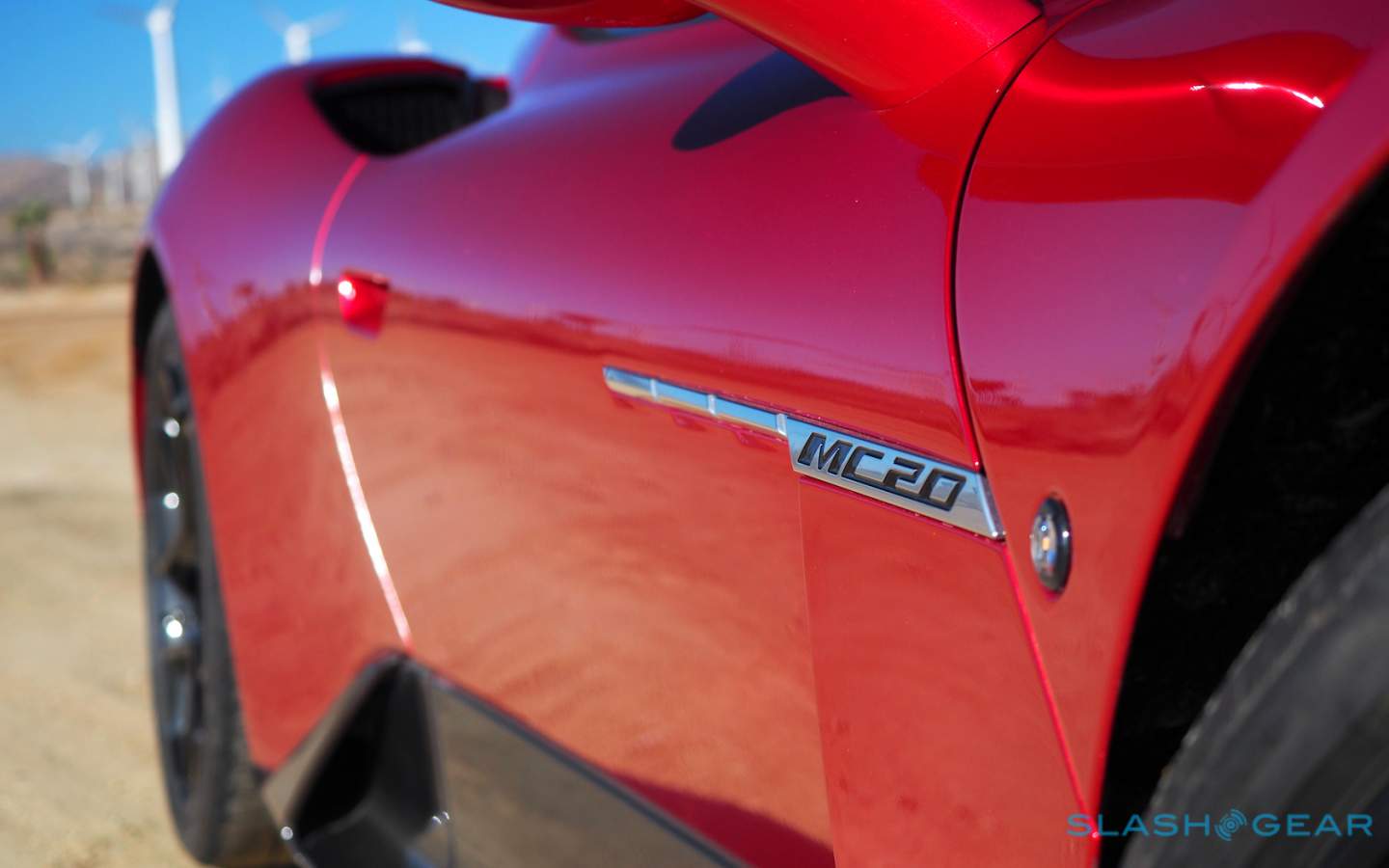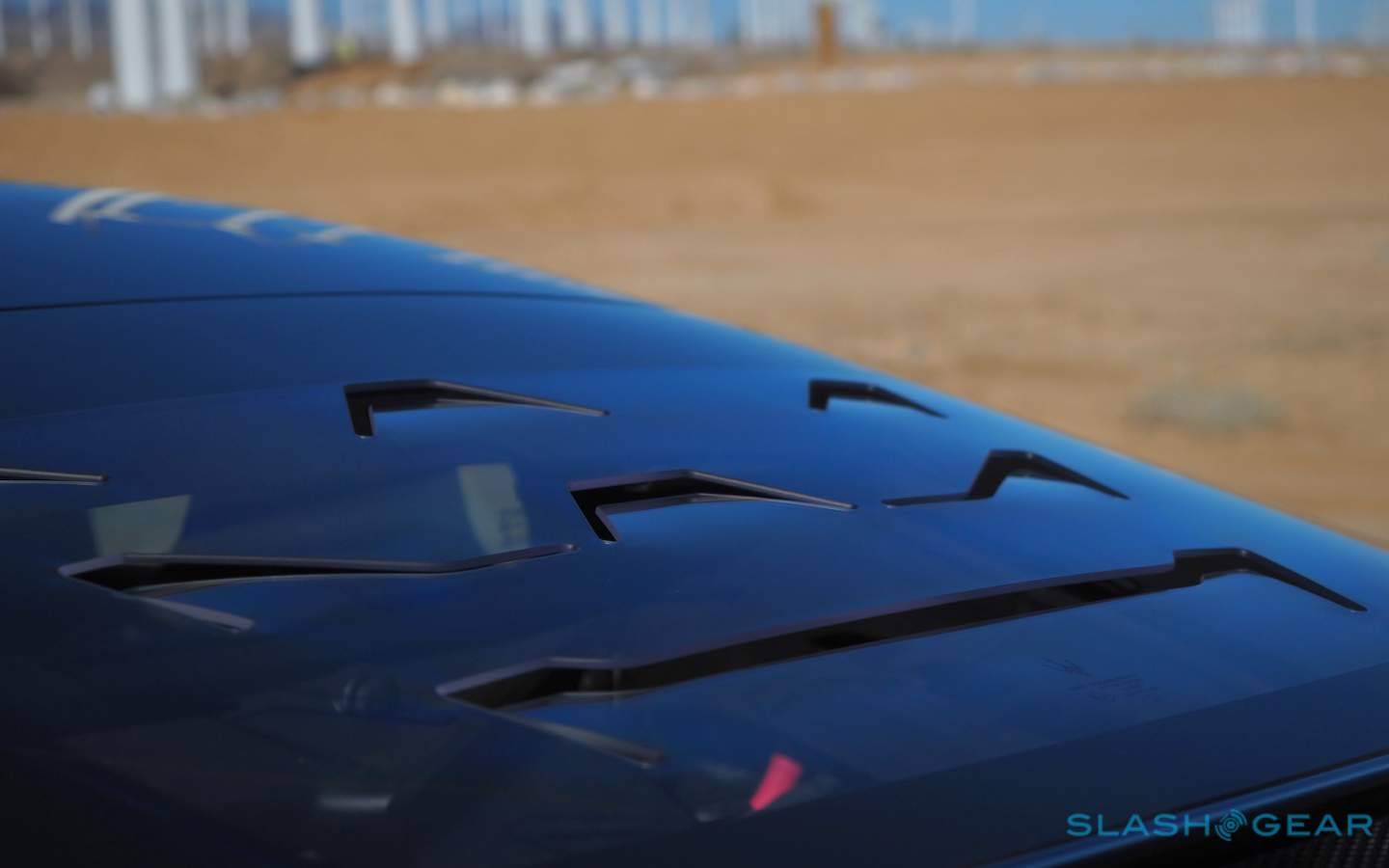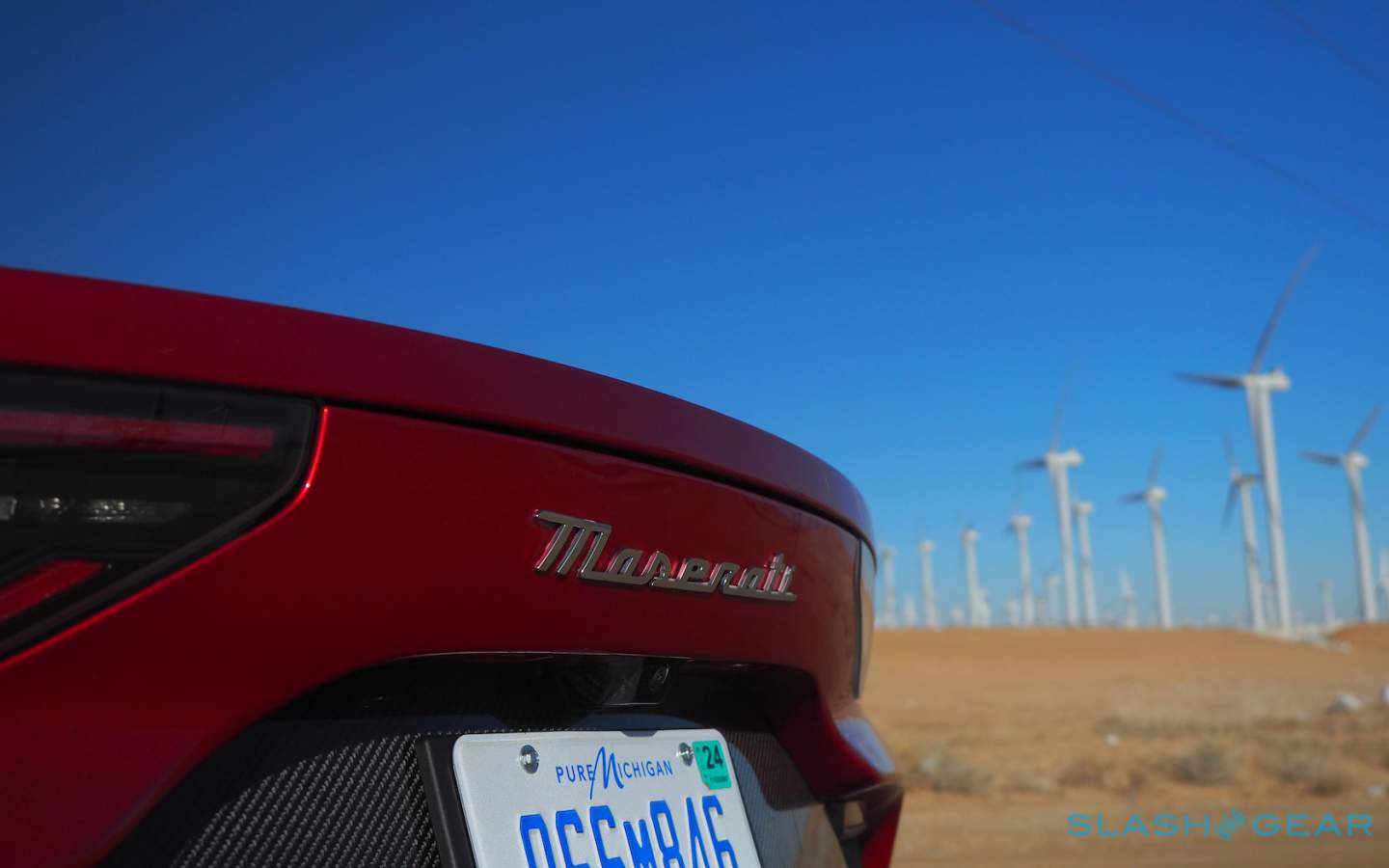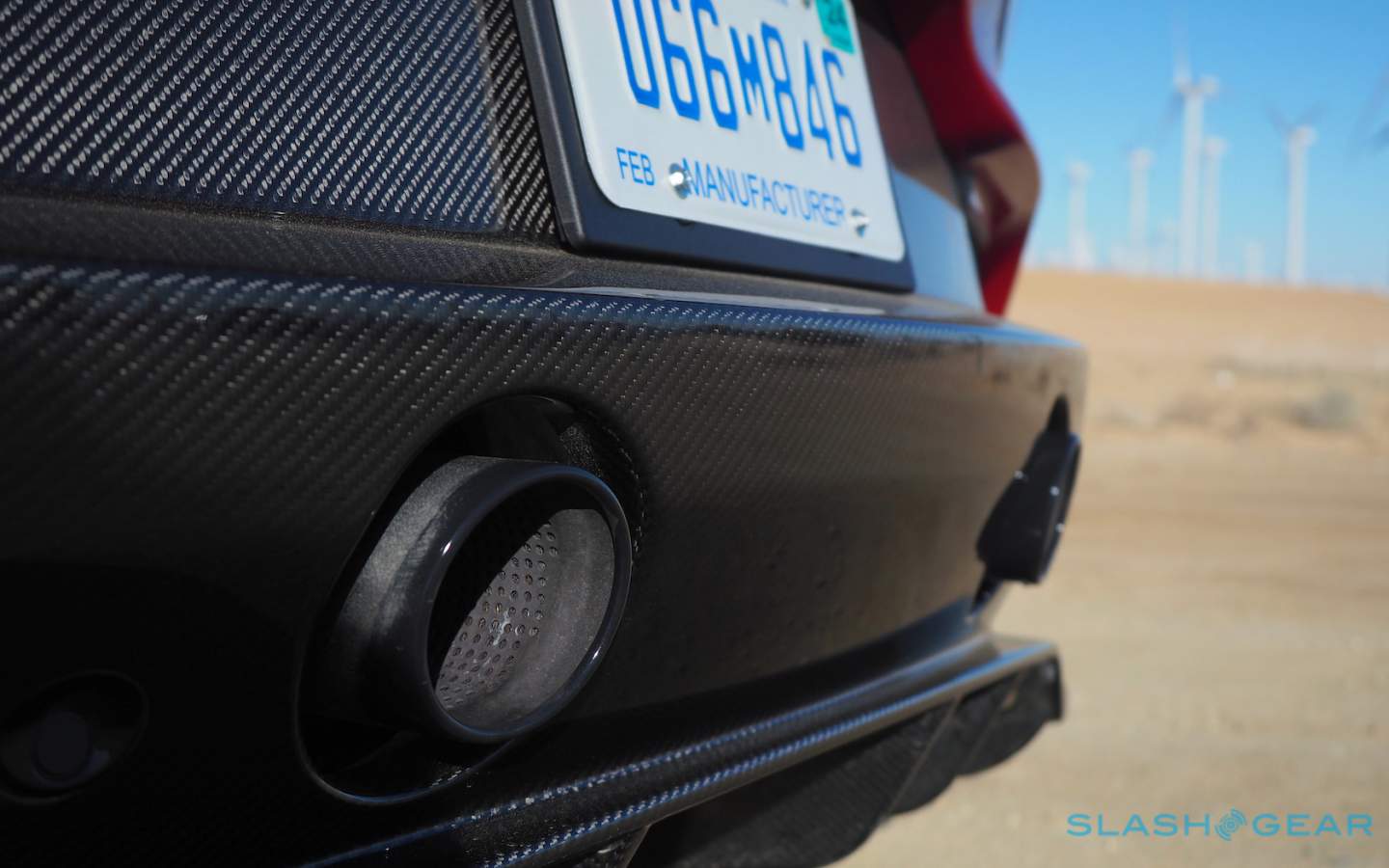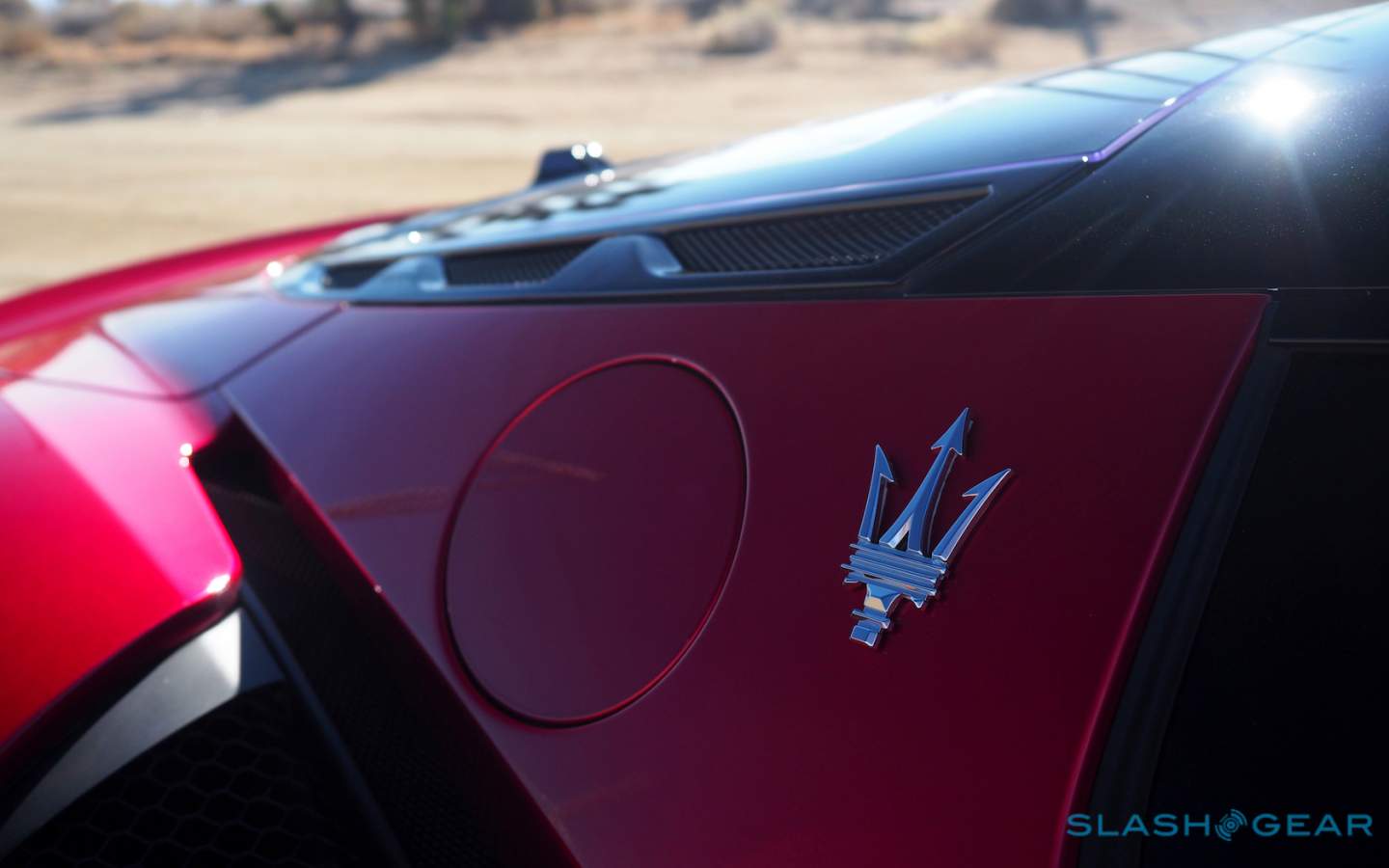2022 Maserati MC20 First Drive: I Can See Your Halo
To qualify as a supercar requires more than just speed. Exclusivity is part of it, and design arguably as important as performance, but a supercar also has to make you feel a certain way. Maserati, for all it is no stranger to fast cars, has been out of the supercar game for nearly two decades now. The new MC20 aims to change that, and in the process cast high and bright a refreshed halo atop the brand.
It was back in 2005 when Maserati called time on the MC12, having built just 50 of the V12 road cars over a two year period. Part homologation requirement for the automaker's racing aspirations, part chest-beating proclamation that it was doing more than just borrowing from Ferrari's toy box, the MC12 was a long, wide, and unexpectedly lavish vision of what a supercar should be.
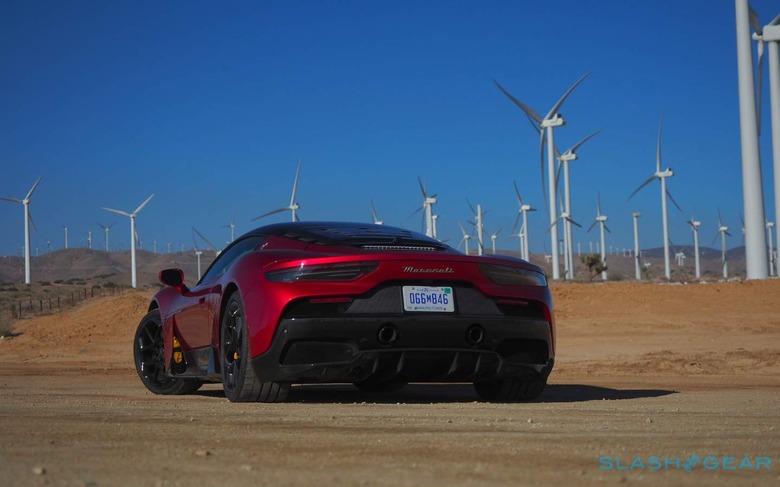
Fast forward to today, and the industry in general is facing an unprecedented shift. New powertrain technologies, tougher emissions standards, and a relentlessly-demanding consumer means the modern supercar must be more than a big engine in a priapic body. Even more pressing, it must justify its existence in a way its predecessors could perhaps avoid.
The halo has to be bright, then, but it also has to be shining on the right things.
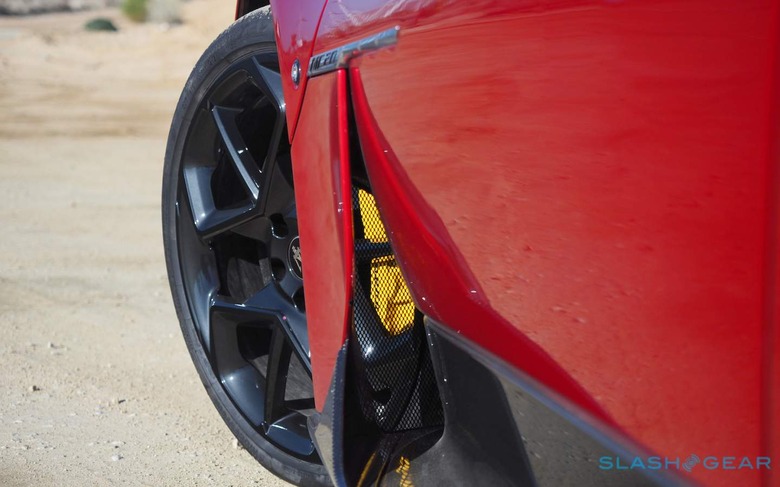
Aerodynamics reign supreme in the MC20's design, Maserati crediting the wind tunnel for encouraging or curtailing any more outlandish features. All the vents and ducts are practical; the carbon fiber is real. Your eye instinctively looks for sports car norms, like an active spoiler, but the automaker says its streamlining means nothing so mundane as pop-up aero is required.
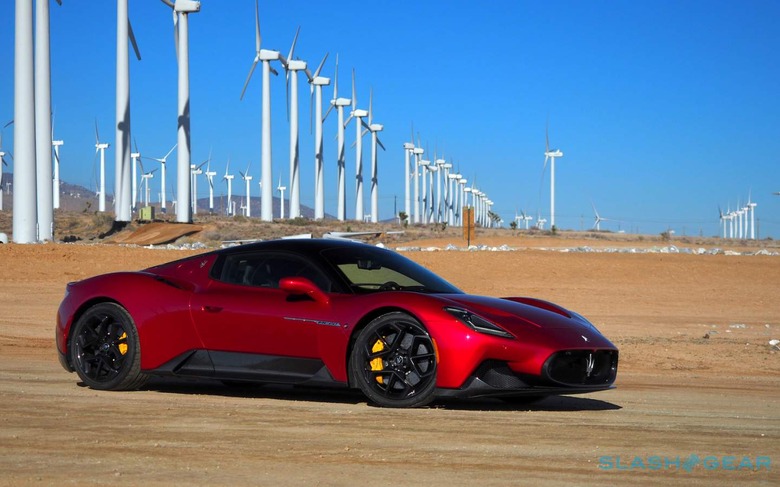
It's not to say there's no visual glitz, mind. Butterfly doors are suitably attention-grabbing, though Maserati also takes full advantage of their contribution to far easier – and more graceful – entry and egress in and out of the cabin. The engine venting in the rear glass is functional, but also reminiscent of the Maserati logo itself; similarly, though the brand's iconic front wing vents are absent, the MC20 gives a nod to them with detailing on the rear window.
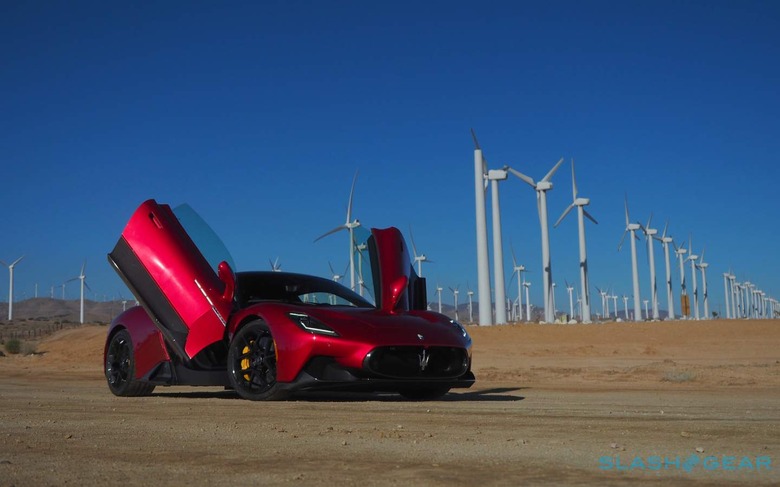
Pricing kicks off at $212,000 (plus $3,995 destination), though by the time you romp through the options list it's not hard to be nudging $300k. Maserati offers six standard colors for the MC20, as well as an extended range of custom finishes, though an eagerness to take delivery among those lucky enough to secure a first-year build means few took the automaker up on that offer. The Bianco Auduce matte-white launch color has apparently been the most popular, arguably no surprise when you see the faintly blue hint given by its darker under-layer, though I'm definitely partial to the Rosso Vincente red of my tester.
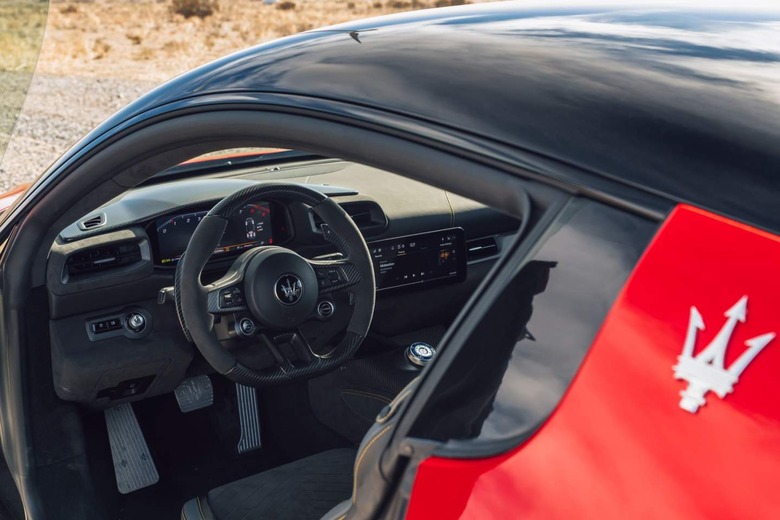
While its Ferrari-produced engines have remained sweetly potent and full-throated, Maserati's over-reliance on Stellantis-group switchgear and software has left the cabin experience in its current sedans and SUVs wanting. Sliding into a $146k Quattroporte Trofeo and finding a mildly-reskinned version of the same infotainment you'd get in a Chrysler minivan just hasn't hit the spot. Neither have the shared buttons with Maserati's more affordable stablemates.
It's a challenge the MC20 tackles, and in two ways. For a start, there's a considerable uptick in cabin quality overall. Italian leather and Alcantara; unique switchgear; and a new, Android Automotive OS-based infotainment system that not only looks much better but is faster and more intuitive too. Some of the detailing is genuinely lovely, like the knurled metal drive mode dial with its fulsome damping, while even more everyday buttons like those for the cruise control on the steering wheel no longer feel like they could've fallen out of a Dodge.
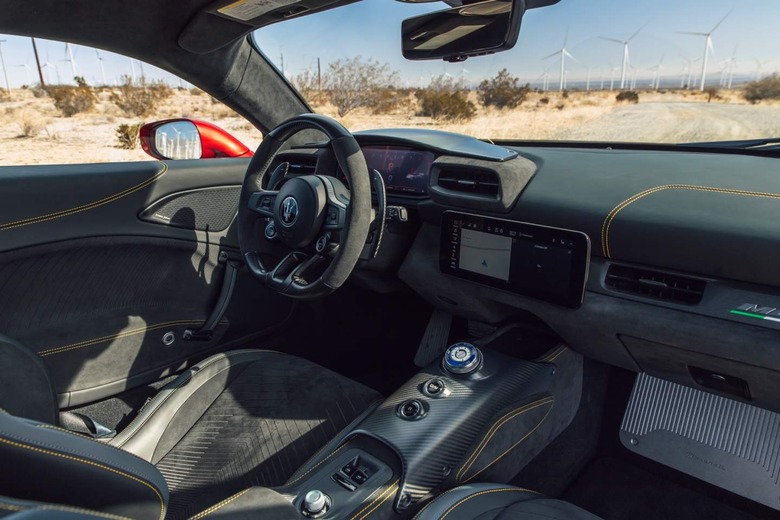
It makes a huge difference to how special the MC20 feels – and how it justifies its price tag – but it'll also have a knock-on impact to Maserati's other models as they're refreshed. Expect some of these more unique finishes, as well as the software that Maserati has developed, to be carried over, helping elevate the passenger compartment experience to match vehicle performance. Sitting at the top of the Stellantis tree, Maserati will get to pick and choose what it wants to include in its forthcoming launches: according to Bill Peffer, CEO of Maserati Americas, that means doing a better job of distinguishing itself overall, without reinventing the wheel along the way.
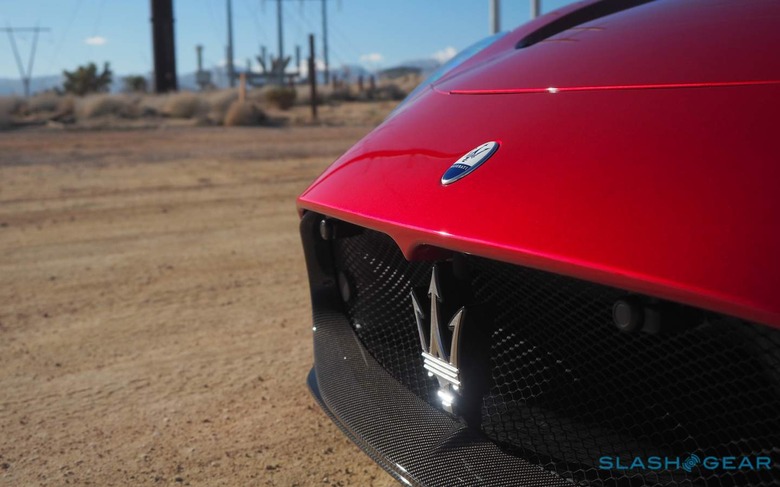
With Maserati and Ferrari drawing a line under their engine co-development pact, the heart of the MC20 was entirely designed in-house. Known as the "Nettuno" it's a 3.0-liter twin-turbo V6, which the automaker says is the highest-powered six-cylinder in production. At 621 horsepower and with 538 lb-ft of torque, combined with the coupe's sub-3,300 pound weight, it leaves the MC20 with the best power-to-weight ratio of the supercar set.
Given the abundance of V8 examples elsewhere in that set – and, indeed, in Maserati's own line-up – the decision to go with a V6 is a borderline-controversial one. Weight is part of it, as is overall packaging: the Nettuno's turbos flank its cylinders, keeping the profile low so that it can fit into the MC20's snug engine compartment.
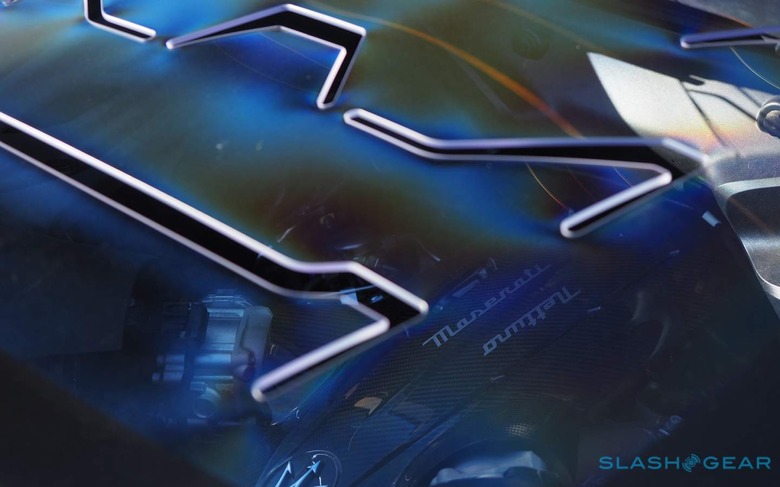
The biggest justification for six rather than eight cylinders, though, is one of need. 621 hp isn't just adequate but positively lavish: 0-60 mph arrives in under 2.9 seconds, and the MC20 has a 202+ mph top speed. A V8 might be good for bragging rights, but a fast, more nimble supercar has to be a better thing overall.
And make no mistake, the MC20 is every bit as poised, lithe, and eager as you'd hope it to be. Thumb the steering-wheel mounted Start button and notch the mode dial to Sport or Corsa modes, and what beguiles is the immediacy that comes along with that punch of performance.
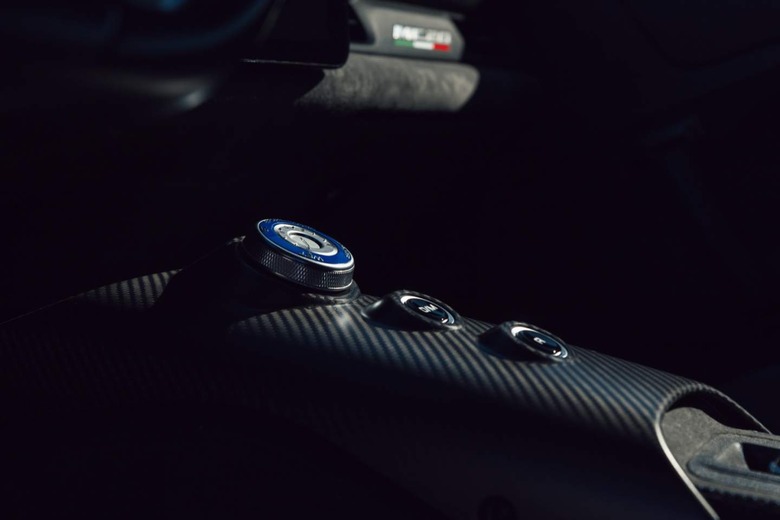
The steering is shockingly direct and precise, Maserati crediting its semi-virtual double-wishbone front axle assembly. There's no play or guesswork; it's enough to put most sport-aspirational GTs to shame. It pays dividends on Willow Springs Raceway, where tight corners with minimal visibility as to what's coming next make setting – and holding – the perfect line even more important.
An 8-speed dual-clutch transmission with steering column-mounted paddle shifters handles putting the power to the rear wheels. With a redline just shy of 8k, and a splendid soundtrack from the dual exhausts, the MC20 suffers neither lag nor fools.
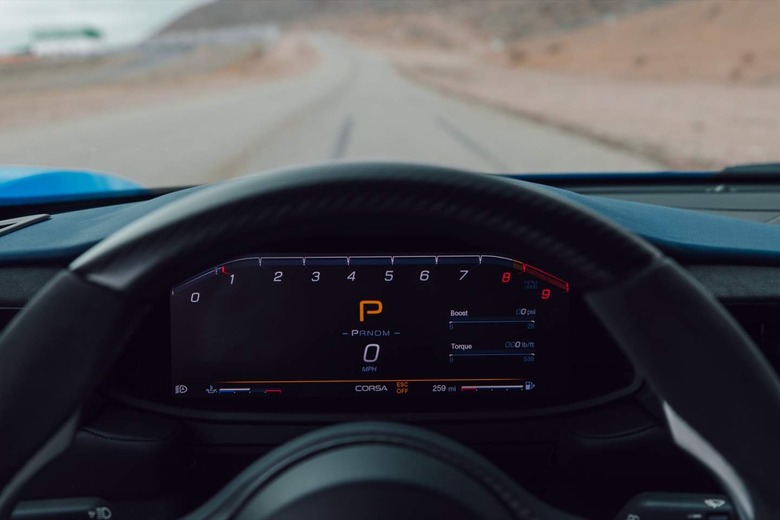
What stands out, though, is how accessible it all is. Make no mistake, in adept hands the Maserati can hustle like a monster. Corsa mode dims the traction and stability control involvement to the bare minimum, and leaves the MC20 an engaged but eager handful. With my own, more everyday track abilities, though, the car is addictively encouraging.
Grip, courtesy in part of custom Bridgestone tires with considerably wider rubber at the rear, is more than plentiful. The MC20 rewards precision, and it's certainly fast enough to get you into trouble if you don't look ahead, but even if you fudge the downshift or miss that perfect line it's perfectly willing to keep playing ball. Some supercars are off-putting in their crisp devotion to racing supremacy, but Maserati hasn't forgotten that Italian playfulness too.
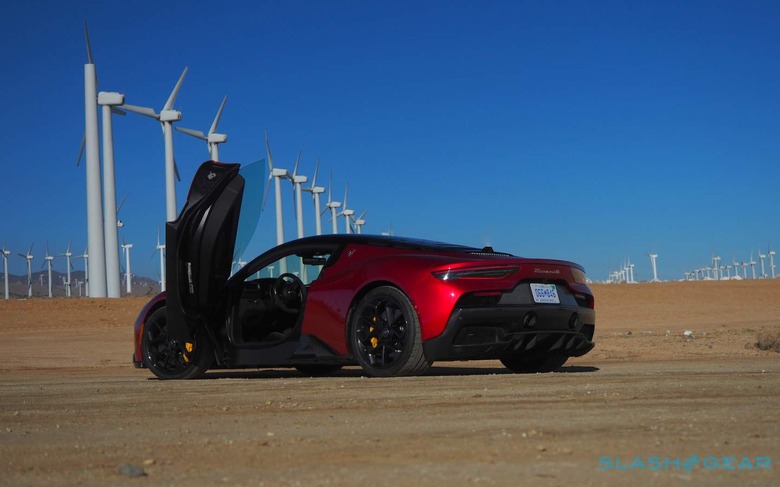
That's not to say the MC20's charms are only good for the track. Twist the mode selector back to GT, and the softer suspension does an unexpectedly good job of dialing in compliance and, dare I say it, comfort. I say softer not soft, but few track weapons this side of a McLaren 720S have this sort of everyday duality, and you'll spend $100k more on the British supercar.
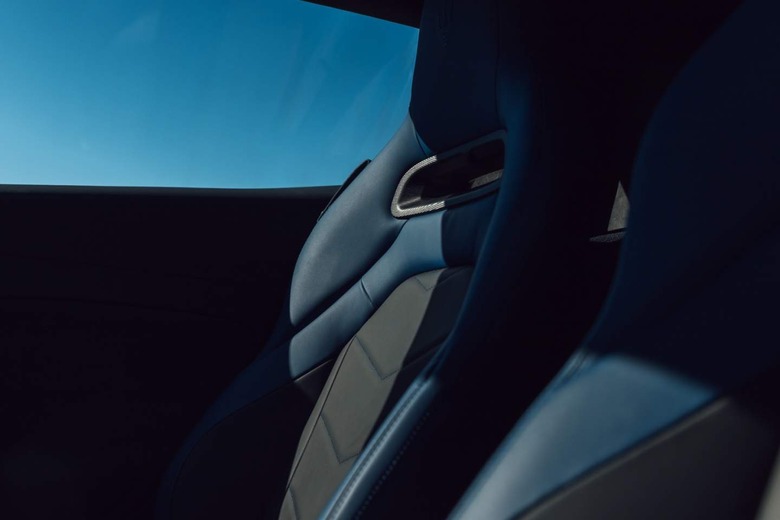
For longer distances a Quattroporte should probably be your first choice, but the MC20 is smooth and that direct steering doesn't get tiring. Arguably the coupe's biggest problem is its pace: GT mode has more tempered boost for the V6, normal resistance for the pedals, and a shifter feel Maserati describes as "slow and smooth," but it's ridiculously easy to find yourself doing 30, 40 mph more than the legal limit without intending to.
Exercise restraint as best you can, and the combination of point-and-shoot speed together with that steering directness I can't stop thinking about a week later make every backroad worthy of a detour.
Maserati has big and small plans for the MC20. On the one hand, it's intentionally keeping supply low: the automaker won't say how many it will build each year, but Peffer is clear that exclusivity is part of the supercar allure. The same, indeed, goes for the CEO's plans for the rest of the line-up, which is shifting to build-to-order. Buyers may have to wait half a year to get their new car, but Maserati is confident that they'll exercise patience in return for bespoke detailing from the increasingly popular Fuoriserie Customization Program.
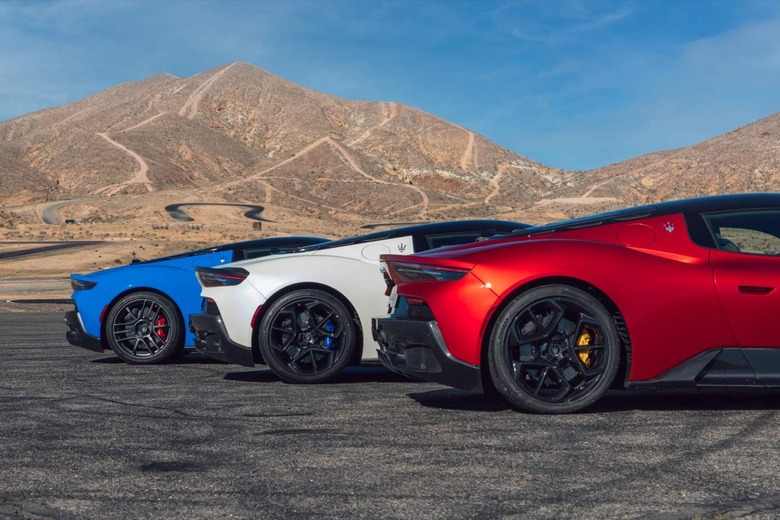
Meanwhile, while today the MC20 is a gas-powered coupe, it was designed with evolution in mind. Maserati has already confirmed that a hard-top convertible is coming, and a fully-electric MC20. Importantly, the carbon fiber chassis is identical for all three iterations, and the automaker has held off from following the industry trend toward committing to a full EV transition by a specific date.
Demand and customer readiness will shape that process, Peffer says. Maserati won't retire the MC20 coupe when the convertible arrives, either, and nor will the V6 disappear as soon as the all-electric model goes on sale. Instead, all three can be built side by side, granting the automaker far more liberty to embrace electrification – or, conversely, hold it at bay – as supercar buyers do.
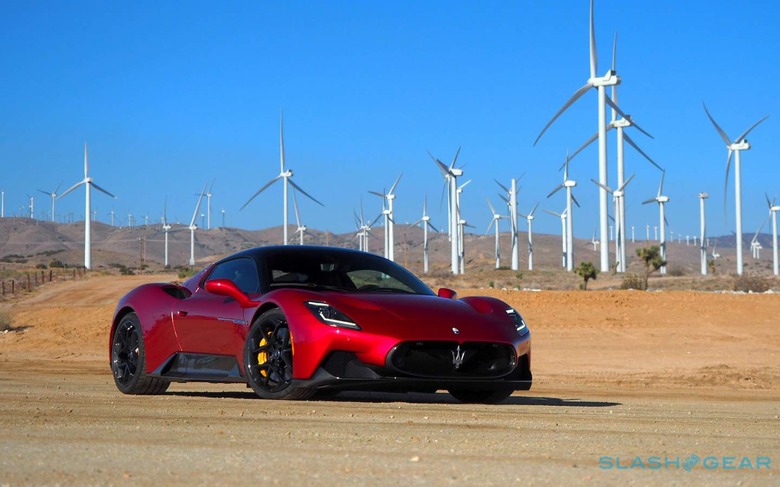
It all sounds suspiciously like a plan, something it has felt like Maserati was lacking for a while now. The MC20 is wildly fast but it's also designed with the future in mind, pays as much attention to cabin feel and touchpoints as it does horsepower, and takes a more measured, brand-appropriate attitude toward the inevitability of gas engines' demise.
Reinvention will take more than a quarter-million-dollar supercar, of course: all the same, a halo not only illuminates, it sets the tone. The MC20 impresses not only by virtue of its dynamics and its drama, but how comprehensively it elevates Maserati as more than just a sports car but a special one. Now the rest of the automaker's line-up just needs to follow suit.

